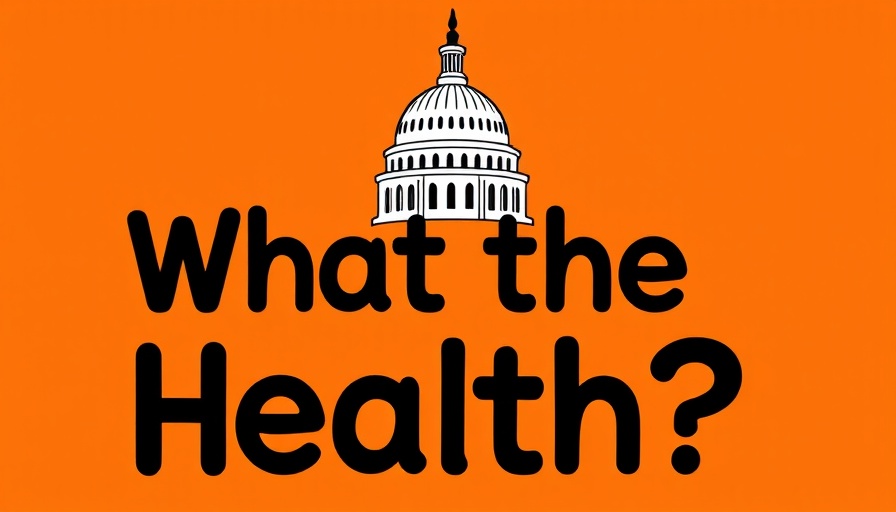
Courts Intervene in Trump Administration’s Funding Cuts
As the Trump administration makes sweeping cuts to government programs, the judicial branch is stepping in to address some of the fallout. Critics of these cuts have raised serious concerns about their legality and the long-term implications for public health. A recent episode of KFF Health News' 'What the Health?' highlights this critical intersection of healthcare policy and legal accountability.
Impact of Funding Cuts on Health Programs
The funding freezes and contract cancellations initiated by the Trump administration have had immediate chilling effects on essential health services. The National Institutes of Health (NIH) face significant disruptions as universities reconsider their hiring processes and research plans, resulting in potential setbacks for innovation and healthcare advancements.
Legal Action Against Funding Cuts
The situation is particularly alarming as legal actions are underway aimed at blocking these funding cuts. Reports indicate that a federal judge has temporarily halted the Trump administration's initiative to slash $4 billion in medical research funding by capping indirect costs. This decision comes in response to a lawsuit brought by a coalition of 22 states, arguing that the move would significantly undermine essential health research efforts across the country.
The Implications of Indirect Cost Caps
Indirect costs cover essential overhead that ensures research facilities operate effectively. The cap placed at 15% starkly contrasts with the previous average of approximately 27-28%, putting vital research at risk including cancer and cardiovascular studies. Such drastic measures raise questions not only about the legality but also about the broader implications for American innovation and public health.
Congress's Role and Future of Health Policy
While the Trump administration pushes these cuts, Congress has been largely silent. Republicans are reportedly hesitating to enact comprehensive funding measures that would fully support public health initiatives, leading to an extension of current funding and a lack of urgency to address systemic health issues, including maternal mortality rates affected by Medicaid cuts.
How Cuts to Health Programs Affect Innovation and Economic Growth
The repercussions of these cuts extend beyond immediate health concerns. A slowdown in biomedical research could thwart advancements that not only benefit public health but also support the economy significantly by creating jobs and nurturing innovation. As institutions struggle under funding constraints, the broader economic landscape risks suffering tangible setbacks as well.
Public Reaction and Future Predictions
Public response to these funding cuts has been growing more vocal, with many groups calling on Congress to intervene and restore necessary funding to NIH and other health programs. If these cuts persist, we could see a decline in U.S. competitiveness in global healthcare research, jeopardizing future breakthroughs and advances.
Current Challenges and Considerations for Health Professionals
For healthcare professionals and industry stakeholders, understanding these shifts and potential cuts is critical. The ability to anticipate changes in funding can help in strategic planning, particularly as innovation in health tech spaces continues to evolve amidst such volatile governmental decisions.
 Add Row
Add Row  Add
Add 




 Add Row
Add Row  Add
Add 

Write A Comment